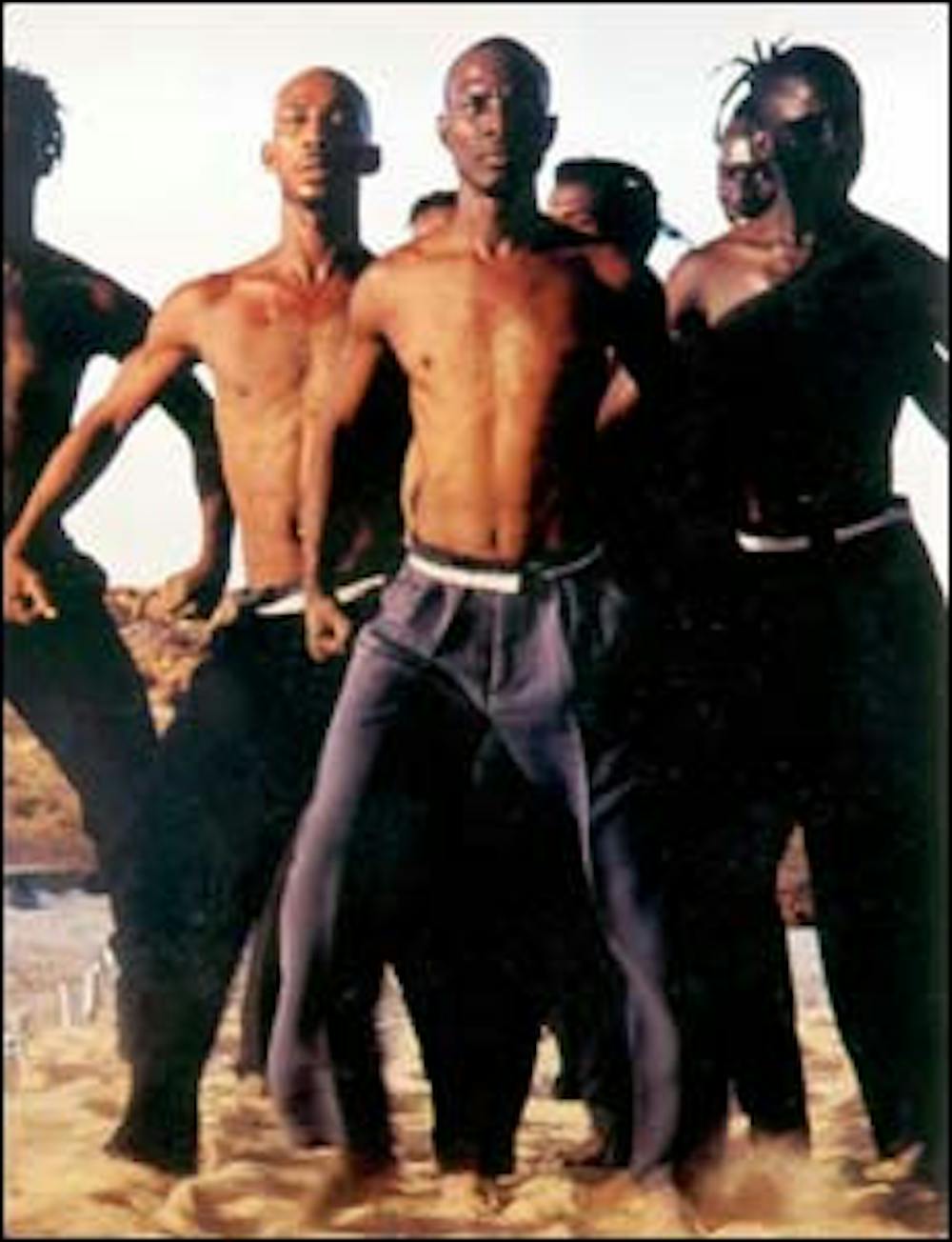Depicting the tragedy of genocide on stage can be risky for any dance choreographer; however the real reason behind the production Fagaala is not to create controversy, but to reveal an interpretation of humanity.
Inspired by a novel describing a fictionalized account of the Rwanda genocides, Germaine Acogny, director of Jant-Bi, an African dance troupe based in Senegal, decided to create a piece that fused the horrors of genocide with more universal themes.
"[As humans], all of us are capable of being kind, or bordering on madness, or experiencing terror or love," Cathy Pruzan, the group's publicist says, "Above all, the idea that the group hopes to portray is that we are all responsible for these kinds of atrocities, and we should not ever let this happen again."
Fagaala, which means genocide in Wolof, the traditional language of Senegal, has been in creation for the past six months. Jant-Bi, a company that only consists of male dancers, premiered their production in January at the University of California-Riverside. Their next stop is at Gammage Auditorium this weekend and they will continue to tour the college circuit off-and-on till mid-may.
In keeping with the universal theme, Acogny, who is Senegalese and French, wanted to incorporate different styles of dancing to this African-based piece. Along with her husband Helmut Vogt, executive director of Jant-Bi, she traveled to Asia to collaborate with Japanese choreographer Kota Yamazaki.
The newest production of Jant-Bi, which means "the sun," is diverse in choreography and physically powerful in its portrayal of the Rwandan struggle to survive amidst a massive civil war. Throughout Fagaala, the dancing alternates between traditional African styles, contemporary dance and Butoh - Japanese dance and Yamazaki's contribution.
Fagaala at Gammage Auditorium, Gammage Parkway and Mill Avenue, Tempe. 7 p.m. Saturday. $20 to $30. Half price tickets available for students with ASU ID, kids 12 and under, groups of 10 or more and ASU alumni.
The dancers were only chosen to be part of the production after they participated in a series of workshops given over a year. Acogny only works with male dancers in Jant-Bi.
To make the portrayals of the genocide authentic and accurate, Acogny brought in a teacher from Rwanda to their dance studio in Dakar to teach the cast traditional songs and dances from the country. The men had been trained vocally as well and sing at some points during the production.
Although Butoh originated in Japan, it is a contemporary avant-garde dance form that is a far cry from traditional Eastern styles. It incorporates dance, theatre, improvisation and influences of Japanese traditional performing arts along with German Expressionist dance. Yamazaki says he had longed to work with male African dancers because he felt that their combination of fluidity and strength would especially do justice to his style of choreography.
Stylistically, the piece strives to invoke imagery, as memory plays an important role. Acogny hopes that the students of ASU and the surrounding community will be touched by the dancing and music, but also by the feeling of collectiveness.
"After seeing the show, they hope the audience can make their own judgments as to their place and responsibility in the world," Pruzan says.
Reach the reporter (and dance enthusiast) at Rekha.Muddaraj@asu.edu




